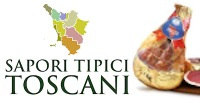Our network:
Sunday 22 December 2024
St Catherine Sanctuary
The steep descent of Via Santa Caterina leads to the Sanctuary and House of St Catherine, which has become a popular place of pilgrimage. The house of the saint was converted into a sanctuary in 1464 and today contains a number of documents and paintings related to her.
The original entrance to the complex was from Vicolo del Tiratoio, through a fine Renaissance door over which was written Sponsae Kristi Chatarinae Domus. In 1941 a new entrance was opened, called the Portico dei Comuni. The entrance opens into the Oratorio del Crocifisso, once the kitchen garden of the Benincasa family and today a single nave church decorated with frescoes by Giuseppe Nicola Nasini.
Near the high altar is the wooden Crucifix from which the saint is believed to have received the stigmata in the Church of Santa Cristina in Pisa, in 1375. It was brought here in 1565. Next to the Oratorio del Crocefisso is the Oratorio Superiore, also known as the Oratorio della Cucina, which probably stands over what were the kitchens of the original Benincasa house. The fine majolica floor is largely 17th century and the elegant inlaid ceiling was designed by Riccio. Above the altar, which is built around the stones of the kitchen fire, hangs a painting by Bernardino Fungai depicting The Stigmata of St Catherine within a surround painted by Riccio in 1572. The walls are adorned with 17 pictures by a variety of artists, including Francesco Vanni, Pomarancio and Manetti. From here, a stair leads to the Oratorio della Camera, decorated with frescoes by Alessandro Franchi in 1896 with Episodes from the Life of St Catherine. Over the altar hangs a painting by Girolamo Benvenuto, again of the Stigmata of St Catherine. The cell where Catherine would retire is also here, along with the stone used by the saint as a headrest.
After a vestibule, another flight of steps leads down to the former warehouse of the Benincasa home, now the Church of Santa Caterina of the Contrada dell’Oca. Above the main altar stands a coloured wooden statue of St Catherine. The walls are decorated with Miracles of St Catherine painted by Gerolamo Della Pacchia, while the angels above the altar are frescoes by Sodoma.
A little stair leads down from the church into the cellar where the Miracle of the Inextinguishable Cask is believed to have taken place. On the opposite side of the church is the museum of the Contrada dell’Oca with the Contrada’s Palio trophies.
The original entrance to the complex was from Vicolo del Tiratoio, through a fine Renaissance door over which was written Sponsae Kristi Chatarinae Domus. In 1941 a new entrance was opened, called the Portico dei Comuni. The entrance opens into the Oratorio del Crocifisso, once the kitchen garden of the Benincasa family and today a single nave church decorated with frescoes by Giuseppe Nicola Nasini.
Near the high altar is the wooden Crucifix from which the saint is believed to have received the stigmata in the Church of Santa Cristina in Pisa, in 1375. It was brought here in 1565. Next to the Oratorio del Crocefisso is the Oratorio Superiore, also known as the Oratorio della Cucina, which probably stands over what were the kitchens of the original Benincasa house. The fine majolica floor is largely 17th century and the elegant inlaid ceiling was designed by Riccio. Above the altar, which is built around the stones of the kitchen fire, hangs a painting by Bernardino Fungai depicting The Stigmata of St Catherine within a surround painted by Riccio in 1572. The walls are adorned with 17 pictures by a variety of artists, including Francesco Vanni, Pomarancio and Manetti. From here, a stair leads to the Oratorio della Camera, decorated with frescoes by Alessandro Franchi in 1896 with Episodes from the Life of St Catherine. Over the altar hangs a painting by Girolamo Benvenuto, again of the Stigmata of St Catherine. The cell where Catherine would retire is also here, along with the stone used by the saint as a headrest.
After a vestibule, another flight of steps leads down to the former warehouse of the Benincasa home, now the Church of Santa Caterina of the Contrada dell’Oca. Above the main altar stands a coloured wooden statue of St Catherine. The walls are decorated with Miracles of St Catherine painted by Gerolamo Della Pacchia, while the angels above the altar are frescoes by Sodoma.
A little stair leads down from the church into the cellar where the Miracle of the Inextinguishable Cask is believed to have taken place. On the opposite side of the church is the museum of the Contrada dell’Oca with the Contrada’s Palio trophies.
Booking.com
• Siena in the Renaissance
• Siena in the Middle Ages
• Siena in Antiquity
• Town Map Siena
• Farm Holidays and Country Houses
• Residence, Apartments
• Bed & Breakfasts
• Historical Residences
• Last Minute Siena
• Restaurants
• Pubs & Wine Bar
• University for Foreigners
• Palazzo Chigi-Saracini
• Palazzo d’Elci degli Alessi
• Loggia della Mercanzia
• Palazzo Sansedoni
• Palazzo Chigi-Zondadari
• Fonte Gaia fountain
• Carthusian Monastery of Pontignano
• Forte di Santa Barbara
• The Duomo – The Cathedral of the Assunta
• Church of the Osservanza
• The Oratory of San Bernardino
• Church of San Francesco
• Short Biography of St Catherine of Siena
• St Catherine Sanctuary
• Church of S. Niccolò al Carmine
• Bologna-Buonsignori museum
• Accademia dei Fisiocritici
• I Musei Senesi
• The Palazzo Pubblico and the Torre del Mangia
• Piazza del Campo
• The Montagnola Senese and the Fortified Village of Sovicille
• The Castles of Belcaro and Quattro Torri
General information
• Town map • Siena in the Renaissance
• Siena in the Middle Ages
• Siena in Antiquity
Transport in town
• Map of Hotels in Siena • Town Map Siena
Transport out of town
• Train services
Where to Stay
• Hotels • Farm Holidays and Country Houses
• Residence, Apartments
• Bed & Breakfasts
• Historical Residences
OFFERS & LAST MINUTE
• Reservation Services Siena • Last Minute Siena
Where to eat and drink
• Disco Dancing • Restaurants
• Pubs & Wine Bar
Education
• Siena University • University for Foreigners
Art and monuments
• Palazzo Piccolomini and Palazzo delle Papesse • Palazzo Chigi-Saracini
• Palazzo d’Elci degli Alessi
• Loggia della Mercanzia
• Palazzo Sansedoni
• Palazzo Chigi-Zondadari
• Fonte Gaia fountain
• Carthusian Monastery of Pontignano
• Forte di Santa Barbara
Art and religion
• Church of Sant’Agostino • The Duomo – The Cathedral of the Assunta
• Church of the Osservanza
• The Oratory of San Bernardino
• Church of San Francesco
• Short Biography of St Catherine of Siena
• St Catherine Sanctuary
• Church of S. Niccolò al Carmine
Museums and galleries
• The Museo Civico • Bologna-Buonsignori museum
• Accademia dei Fisiocritici
• I Musei Senesi
Art and tourist attractions
• Cappella di Piazza • The Palazzo Pubblico and the Torre del Mangia
• Piazza del Campo
• The Montagnola Senese and the Fortified Village of Sovicille
• The Castles of Belcaro and Quattro Torri
Booking.com
• The July and August Palio
• The Contrade
• The Days of the Palio
• The Drappellone
• The Eve of the Palio
• The Corteo Storico Procession
• The Race
• The Patron Saint and Oratory of Each Contrada
• Weekly Appointments in each Contrada from April onwards
• Croce del Travaglio Place
• From Piazza del Campo to the Duomo Along Via di Città
• The Curves of Piazza del Campo
• Costarella dei Barbieri street
• Borgo d’Ovile
• The Terzo of Camollia – main streets
• Casato di Sopra e Casato di Sotto
• Terzo di San Martino district
• The Terzo di Città District - Via Stalloreggi, Via San Quirico
• The Terzo di Città District – The Pinacoteca Nazionale
• Golf courses in Siena and Tuscany
• Wedding in Tuscany - Siena area
• San Casciano dei Bagni
• Chianciano Terme
• Bagni San Filippo
• Bagno Vignoni
• Rapolano Terme - Baths of San Giovanni and Baths of the Antica Querciolaia
• The Countryside around Siena and its Thermal Water Springs
• SkiPass Monte Amiata
• WebCam sul Monte Amiata
• Meteo Monte Amiata
• The Val d’Orcia and Its Main Towns
• Pienza - the old town centre
• Montepulciano - the old town centre
• San Quirico d’Orcia - the old town centre
• Montalcino and the Land of Brunello
• The Abbey of Monte Oliveto Maggiore and the Crete
• The Crete Senesi
• Castellina in Chianti and the Via Chiantigiana Towards Siena
• Siena and Southern Chianti - from the Castle of Montalto to the Castle of Brolio and on to the Castle of Meleto
• The Chianti Hills - Monte Calvo, Monte Luco and Monte San Michele
• Cortona and the Valdichiana
• San Gimignano - The old town centre and its major sights
• The Val d’Elsa - Monteriggioni and Colle di Val d’Elsa
• Along the Old Via Francigena
• Oleum Evo online selling
• Sapori Tipici Italiani buy online now
• il Prosciutto Cotto
The Palio of Siena
• The Origins • The July and August Palio
• The Contrade
• The Days of the Palio
• The Drappellone
• The Eve of the Palio
• The Corteo Storico Procession
• The Race
• The Patron Saint and Oratory of Each Contrada
• Weekly Appointments in each Contrada from April onwards
Sightseeing
• Via di Città (formerly Via Galgaria), Siena’s Most Elegant Street • Croce del Travaglio Place
• From Piazza del Campo to the Duomo Along Via di Città
• The Curves of Piazza del Campo
• Costarella dei Barbieri street
• Borgo d’Ovile
• The Terzo of Camollia – main streets
• Casato di Sopra e Casato di Sotto
• Terzo di San Martino district
• The Terzo di Città District - Via Stalloreggi, Via San Quirico
• The Terzo di Città District – The Pinacoteca Nazionale
What to see & do
• Wedding in Siena • Golf courses in Siena and Tuscany
• Wedding in Tuscany - Siena area
• San Casciano dei Bagni
• Chianciano Terme
• Bagni San Filippo
• Bagno Vignoni
• Rapolano Terme - Baths of San Giovanni and Baths of the Antica Querciolaia
• The Countryside around Siena and its Thermal Water Springs
Monte Amiata
• Monte Amiata - nature tourism the year round • SkiPass Monte Amiata
• WebCam sul Monte Amiata
• Meteo Monte Amiata
Specials - Out of town
• Gift Ideas for traveling • The Val d’Orcia and Its Main Towns
• Pienza - the old town centre
• Montepulciano - the old town centre
• San Quirico d’Orcia - the old town centre
• Montalcino and the Land of Brunello
• The Abbey of Monte Oliveto Maggiore and the Crete
• The Crete Senesi
• Castellina in Chianti and the Via Chiantigiana Towards Siena
• Siena and Southern Chianti - from the Castle of Montalto to the Castle of Brolio and on to the Castle of Meleto
• The Chianti Hills - Monte Calvo, Monte Luco and Monte San Michele
• Cortona and the Valdichiana
• San Gimignano - The old town centre and its major sights
• The Val d’Elsa - Monteriggioni and Colle di Val d’Elsa
• Along the Old Via Francigena
Typical products
• Typical Tuscan flavours • Oleum Evo online selling
• Sapori Tipici Italiani buy online now
• il Prosciutto Cotto









